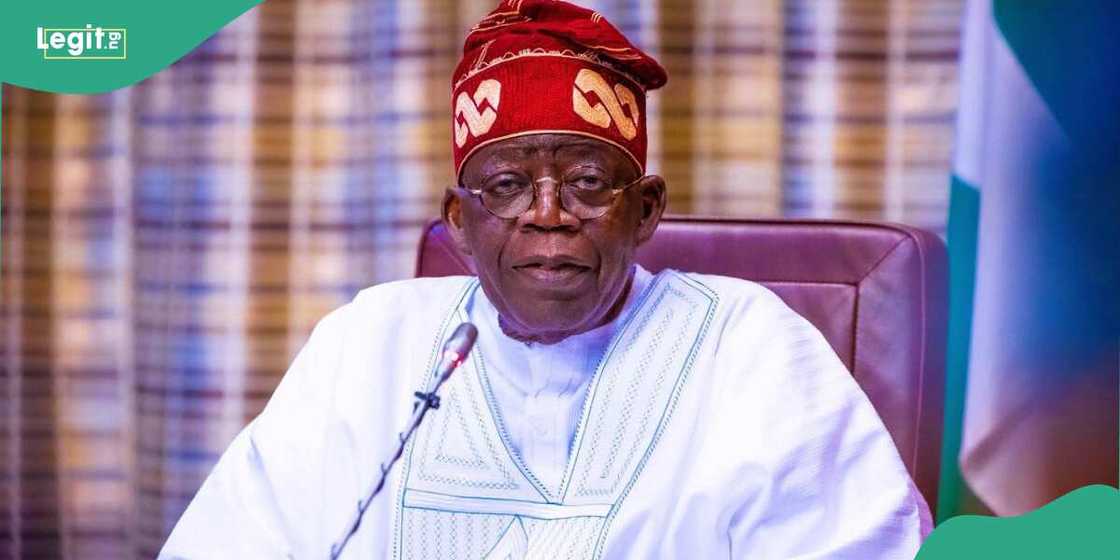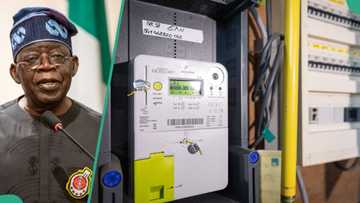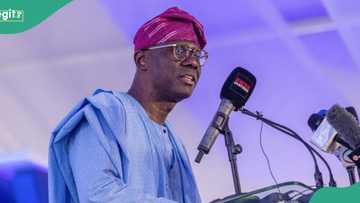Zero-interest, 40-year Tenure, Other Things to Know About Tinubu's $3.5bn World Bank Loan
- Finance Minister has drawn a plan to the FEC on how the $3.5 billion loan from the World Bank will be spent
- It said the money would be used for the development of the electricity sector, renewable energy, and others
- FEC also gave its approval for the creation of the Humanitarian and Poverty Alleviation Fund
The request for a $3.45 billion loan to pay for five things was granted on Monday, October 23, 2023, by Nigeria’s Federal Executive Council (FEC)
The fund is expected to be directed to five projects: initiatives for women’s empowerment, the electricity sector, renewable energy, the states’ resource mobilisation programme, and the teenage girls’ initiative for learning and empowerment.

Source: UGC
Zero-interest loan
According to Wale Edun, Minister of Finance and Coordinating Minister of the Economy, the FG would proceed to receive the $3.5 billion “zero-interest” loan payable over 40 years with a 10-year moratorium.
PAY ATTENTION: Share your outstanding story with our editors! Please reach us through info@corp.legit.ng!
He informed State House correspondents that repayments would start in 2033.
Edun explained:
“Today at the Federal Executive Council, I presented five memos which were gracefully approved by the Council. They had to do with concessional and, in many cases, zero-interest financing by the World Bank and the International Development Association, which is the very concessional financing arm.
“The projects that were approved for funding were in the power sector and then the renewable energy sector. There was funding for states for resource mobilization programs to help them with the internally-generated revenue efforts.
“There was a project for adolescent girls’ initiative for learning and empowerment. And then finally the fifth financing that was approved was for Women project.”
According to the finance minister, the $700 million girls’ plan would help girls of secondary school age acquire employable skills and academic accomplishments.

Read also
Tinubu proposes electricity tariff review, sets N2 trillion recapitalisation target for DisCos
Additionally, the Federal Executive Council approved the creation of the Humanitarian and Poverty Alleviation Fund, which aims to raise $5 billion annually for immediate humanitarian disasters.
Dr. Betta Edu, the minister of Humanitarian Affairs and Poverty Reduction, stated that in addition to contributions from the government, the private sector and individuals, the funding will also come from the government’s development partners.
Recall that Tinubu’s administration secured a fresh $700m loan from the World Bank, the third facility approved under his administration.
Legit.ng earlier reported that Nigeria is ranked fourth on the World Bank’s top 10 International Development Association (IDA) borrowers list.
Charles Abuede, a financial analyst said the pursuit of the loan from the World Bank aims to alleviate the hardships brought about by factors such as mounting inflation, a weakening Naira, and escalating commodity prices.
Nonetheless, he noted that it is prudent to consider the historical context and acknowledge past challenges related to the allocation and management of public funds in Nigeria.
He noted:
Previous administrations have faced criticisms regarding the utilization of limited public resources, which has contributed to the country's increasing debt burden. There is a concern that the intended objectives of projects may not always be achieved, as funds have, at times, found their way into the hands of those who are not part of the vulnerable demographic.
Nigeria successfully repays China, the World Bank, and others $1.17bn loan, still owing more
Legit.ng earlier reported that the federal government paid $1.17 billion to service foreign debt commitments in the first half of 2023.
This was revealed in the Export and International Payment data released by the Central Bank of Nigeria (CBN).
Legit.ng earlier reported that the Nigerian government spent over 85% of its revenue servicing debt in February 2023.
Source: Legit.ng




